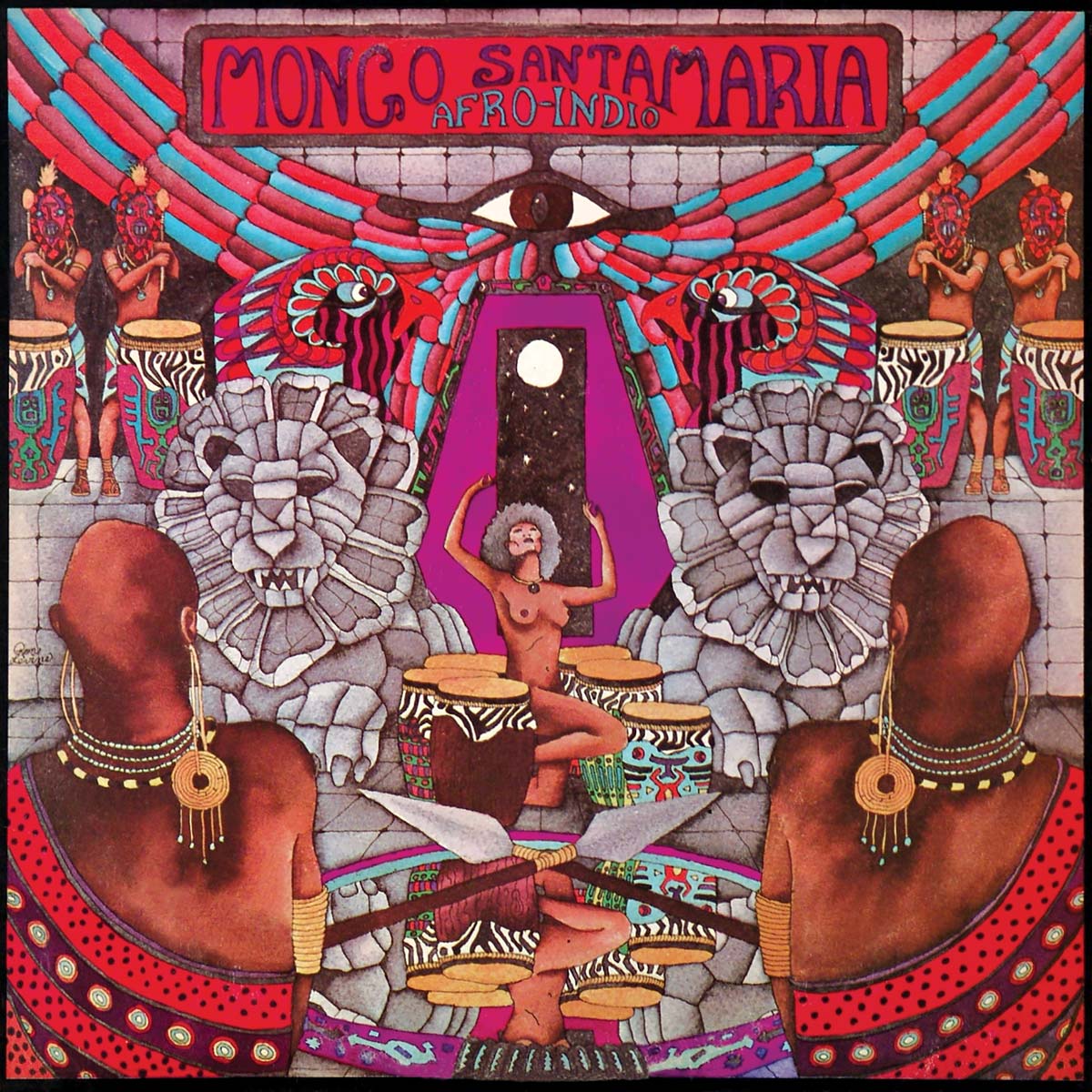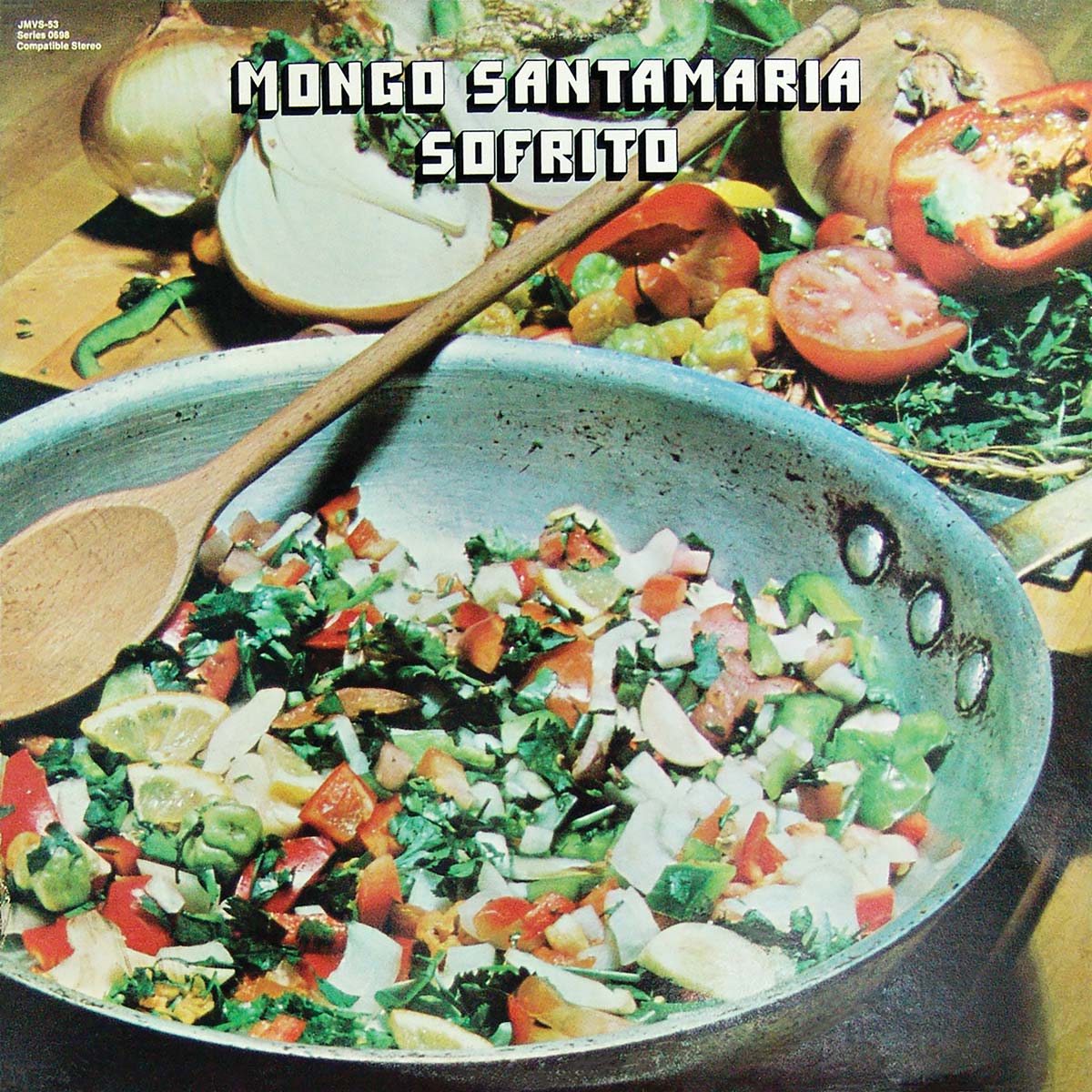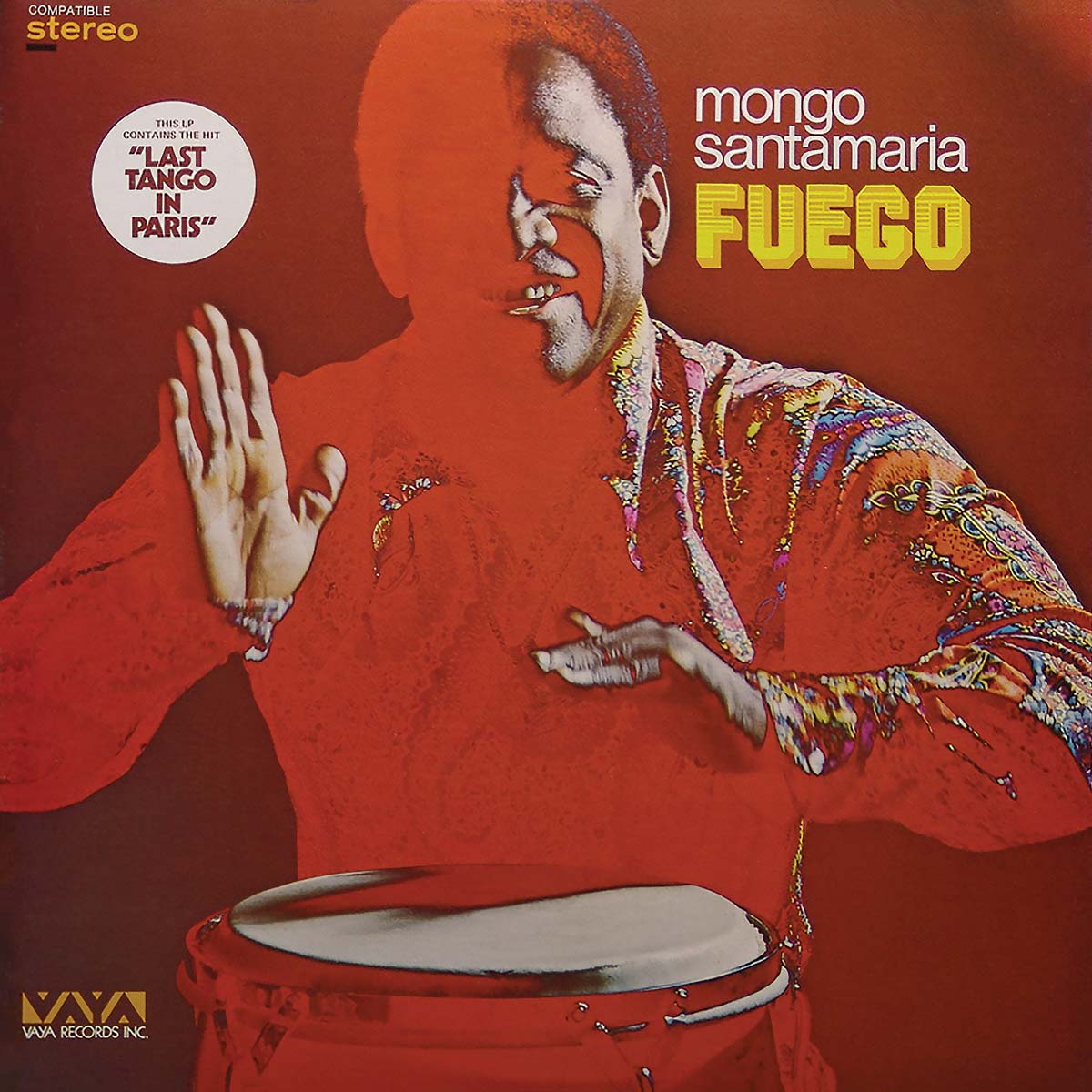
An icon in the worlds of Afro-Cuban music, Jazz and Pop culture, Ramon Mongo Santamaria (b. April 7, 1917, d. Feb. 1, 2003) did more to popularize the conga drum than any other musician of his time. Born and raised in the rumba and West African- religious drenched Jesus Maria district of La Habana, Cuba, he came to prominence as a bongo player during the time the son was taking Havana by storm with boyhood friends and fellow percussionists Candido and Armando Peraza.
After coming to the U.S. in 1950 with Damaso Perez Prado’s big band, he quickly came to the public’s attention as the conga player for timbale titan Tito Puente’s orchestra. With Tito on timbales, fellow Nuyorican Willie Bobo on bongó and Mongo on congas, they formed what many consider the most incredible percussion triumvirate in the history of Afro-Cuban based dance music. A move in 1957 with Willie Bobo to jazz vibraharpist Cal Tjader’s West coast based combo was fortuitous. Both Santamaria and Bobo were the featured soloists in the group on congas/bongo and timbales/drum set respectively on a string of albums for the Fantasy label that achieved commercial and artistic success. In 1961 he became a leader, first fronting a charanga (flute and violin) based group. But through the urging of his bassist, Chicago born Mexican American Victor Venegas, he changed the format of the group to a three horn front line of trumpet, alto and tenor sax’s (who doubled on flutes) giving it a distinctive jazz sound.
In 1963 they recorded pianist Herbie Hancock’s Watermelon Man. Its combination of cha-cha-cha, son montuno and blues gave Mongo a million selling hit and set the stage for a string of recordings that fused R&B, funk and rock with a jazz harmonic and Afro-Cuban rhythmic base. It became The Mongo Sound. This 1975 release on Vaya Records is no exception – it opens with Stevie Wonder’s “Creepin’” done as only Mongo could. The sultry melody percolates as Mongo converses on the bongó throughout while Al Williams alto soars. “Funk Up” is an up-tempo piece that combines elements of mambo and R & B and provides a platform for Justo Almario’s growling tenor. Willie Allen’s “Mambomongo” provides the highlight on this recording. Classic Afro-Cuban jazz, it’s perfect for listening and/or dancing. Its opening figure played by Armen Donelian on the Fender Rhodes electric piano became the tunes signature as fans would scream as soon as they heard it in live performance. Justo’s bluesy soprano work along with Armen’s great solo are just the preamble to the final salvos by Mongo on congas, Greg Jarmon on bongó and Steve Berrios on timbales. “Funk Down” reflects Mongo’s attempts to stay current with the disco movement. “Los Indios” by Almario is a foreboding slow funk piece that features synthesizer and Armen’s driving electric piano. Mongo recorded many pop hits of the day attempting to re-create the success he had with Watermelon Man and here he covers “Lady Marmalade” which was a hit for soul diva Patti Labelle & Labelle.
Guest drummer Bernard Purdie lays down the funk as Mongo provides extra propulsion on congas. “The Promised Land” is a melody that seems inspired by Pharaoh Sanders and it’s as much mambo as it is funk with Mongo’s powerful conga drumming having the final word. “What You Don’t Know” is again in the disco vein with driving guitar, horns and percussion. Joe Gallardo’s “Song for You” features some beautiful duel flute work over a Brazilian bossa nova groove combined with Cuban bolero rhythm underneath. “Midnight and You” closes the album as is yet another showcase for the flutes as Eric Gale interjects some soulful guitar. If you look at Ron Levine’s beautiful cover art for “Afro-Indio”, you’ll immediately get Mongo’s message. As legendary program director for NYC’s then R&B powerhouse, radio station WBLS used to say, The total Black experience in sound. Long live Mighty Mongo.
Credits: Mongo Santamaria – Congas, Bongos, Claves Justo Almario – Tenor Sax, Soprano Sax, Flute Al Williams – Alto Sax, Flute Ray Maldonado – Trumpet Greg Jarmon “Peachy” – Bongó, Cencerro, Congas, Chekere Armen Donelian – Fender Rhodes Electric Piano William Allen – Bass Guitar Roscoe Mackey – Bass Guitar Steve Berrios – Traps, Timbales, Percussion Bob Porcelli – Flute Victor Paz – Trumpet Tom Malone – Trombone, Synthesizer Bernard Purdy – Drums Paul Griffin – Electric and Acoustic Piano Vocals on “Lady Marmalade” – Tasha Thomas, Carl Hall, Barbara Maffey Executive Producer – Jerry Masucci Producer – Marty Sheller (“Creepin’”, “Funk Up”, “Mambomongo”, “Funk Down”, “Los Indios”, “The Promise Land”, “Song For You”), Jerry Masucci & Marty Sheller (“Lady Marmalade”, “What You Don’t Know”, “Midnight And You”) Recorded at – Bell Sound Studios Engineer – Fred Weinberg Original Album Art and Design – Ron Levine
Written by Bobby Sanabria




